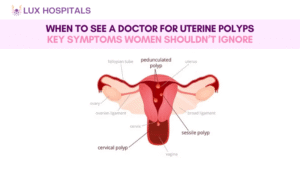MTP Procedure: Recovery Tips and Managing Side Effects for a Smooth Healing

The MTP procedure (Medical Termination of Pregnancy) is A safe and efficient method of ending an unplanned pregnancy. It involves the use of medication, commonly referred to as an MTP kit, which is prescribed under a licensed medical professional’s supervision. While this method is widely regarded as safe, it can have certain side effects that need attention.
In this article, we’ll examine the applications and side effects of an MTP kit, how to manage them, and tips for a smooth recovery.
What Is the MTP Procedure?
The MTP procedure is carried out when a woman chooses to terminate her pregnancy for medical, personal, or socio-economic reasons. The following may be part of the procedure, depending on the stage of pregnancy:
- Medication-based MTP: This is usually performed up to 9 weeks of pregnancy and involves taking a series of pills to terminate the pregnancy.
- Surgical MTP: For pregnancies beyond 9 weeks, surgical methods such as suction or dilation and curettage (D&C) are used to remove the pregnancy.
Both methods are generally safe when used under the supervision of qualified gynecologists, but it’s important to recognize any potential adverse effects and know how to treat them.
MTP Kit Uses
MTP kits are made especially for early pregnancy termination. Women who choose to forego surgical procedures can choose this dependable and practical choice. Among the MTP kit’s primary applications are:
- Safe termination of early pregnancy.
- Avoidance of invasive surgical procedures.
- A private, at-home option for eligible women under medical supervision
Common Side Effects of the MTP Procedure
Although the MTP procedure is considered safe, it may cause specific side effects. Some of the most common MTP kit side effects include:
- Cramping and Abdominal Pain: This is caused by uterine contractions and can range from mild to severe.
- Vaginal Bleeding: Heavy bleeding is common after using the MTP kit and may last for a few days.
- Nausea and Vomiting: Hormonal changes due to the medication may cause gastrointestinal discomfort.
- Diarrhea: Loose stools are a side effect for some women.
- Fatigue and Weakness: Temporary fatigue may be caused by hormonal changes and blood loss itself.
In rare cases, there may be more severe MTP side effects, such as:
- Severe abdominal pain or prolonged bleeding.
- chills or a fever, which may be signs of an infection.
- Dizziness or fainting due to excessive blood loss.
If any of these symptoms occur, You must see a healthcare provider immediately.
How to Manage Side Effects of the MTP Procedure?
Here are some tips to effectively manage the common MTP kit uses and side effects:
- Pain Relief: Use over-the-counter painkillers like ibuprofen, as recommended by your doctor, to alleviate cramping and pain.
- Stay Hydrated: Increase fluid intake to help fight nausea, diarrhea, and general weakness.
- Monitor Bleeding: Keep an eye on the duration and severity of vaginal bleeding. Seek medical help if it worsens or persists.
- Rest and Recovery: Make sure you get enough sleep so your body can heal more quickly. Spend a few days apart from physically demanding activities.
- Follow-Up Appointment: Schedule a follow-up Make an appointment with your physician to ensure that the procedure and address any complications.
When to Seek Medical Help?
While most women recover smoothly from the MTP procedure, it’s essential to recognize warning signs that require medical attention:
- Excessive bleeding soaking two hours in a row, more than two pads at a time.
- Severe abdominal pain that doesn’t respond to painkillers.
- Fever above 100.4°F (38°C) that lasts for more than 48 hours.
- Foul-smelling vaginal discharge, which may indicate an infection.
- Signs of depression or suicidal thoughts.
You should see a doctor immediately if you experience any of these symptoms.
Conclusion
When performed under the guidance of a qualified medical professional, the An early pregnancy can be safely and effectively ended with the MTP method. It’s important to be aware of any side effects and take the necessary precautions to take care of your body while you recover, even though MTP is generally well accepted.
Every woman’s experience is unique, and feeling a mix of emotions during this time is completely normal. Being informed, following your doctor’s guidance, and knowing When to get aid can help the process go more smoothly. and less stressful. Remember your physical and emotional well-being matters. Don’t hesitate to reach out for medical or emotional support if you need it. You’re not alone in this.
Frequently Asked Questions
Excessive bleeding, infection, incomplete abortion, or severe drug reactions are among the possible risks and problems associated with MTP. Safety is ensured by prompt medical intervention.
Yes, medical termination of pregnancy (MTP) is usually safe when carried out under the supervision of a trained healthcare professional. Adhering to medical advice minimizes risks.
Indian law’s Medical Termination of Pregnancy Act (MTP) permits medical termination of pregnancy. Under certain circumstances, it allows abortion up to 24 weeks into a pregnancy.
For an early termination, the MTP technique entails speaking with a healthcare professional, taking the medication suggested by the MTP kit, or having a little surgery for a later stage. Successful completion and recuperation are ensured via follow-up.
Similar to menstruation pain, mild to moderate cramping and discomfort may be experienced during the MTP treatment. Options for pain control can substantially reduce discomfort.




















